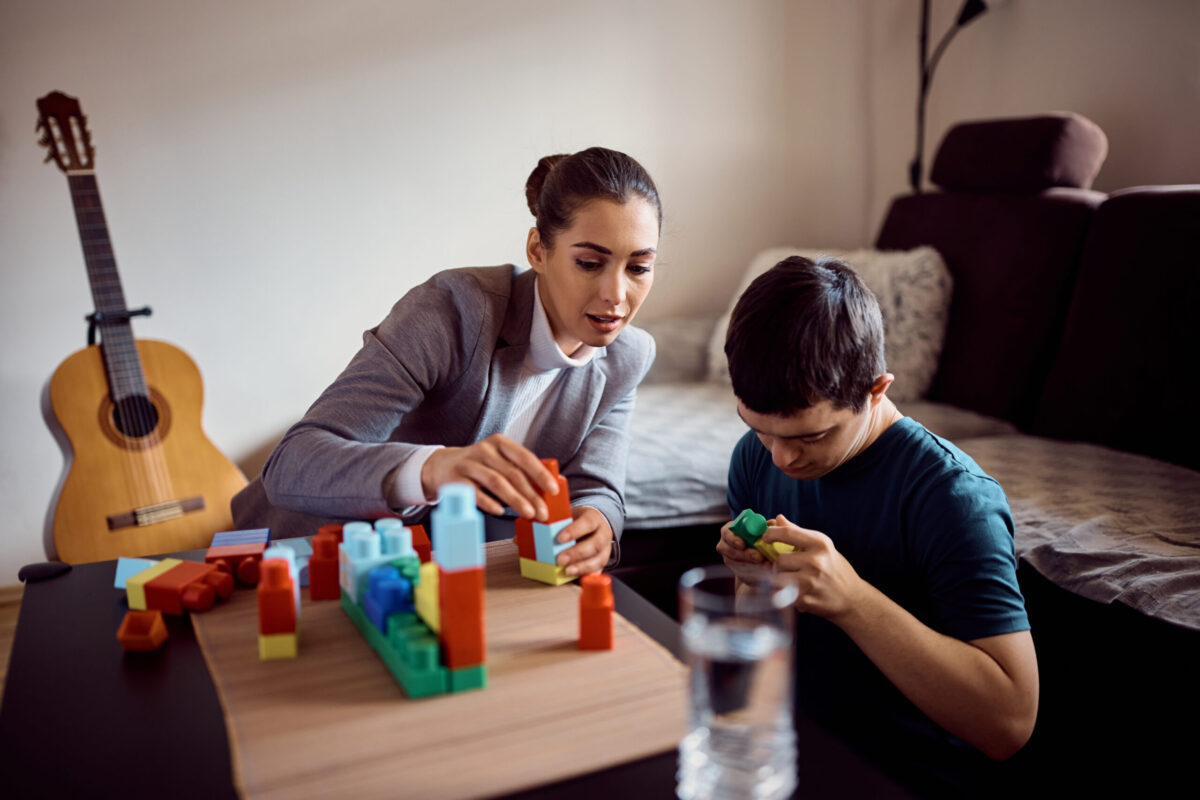Assistance for an Overlooked Population
Behavioral Support Services at Laura Baker Services Association (LBSA) look to highlight an overlooked segment of people. For people with intellectual and developmental disabilities (IDD) and co-occurring mental health diagnoses, “solutions” often come in the form of hospital emergency rooms or other extreme and inappropriate treatments. Data indicates that up to 40% of people with IDD have co-occurring mental health diagnoses. Other people with IDD have behavioral challenges which may limit their ability to be fully integrated into the community. LBSA’s Behavioral Support Services will offer assistance to these overlooked populations and their families.
In a recent conversation, Sue Abderholden, Executive Director of NAMI Minnesota, noted that state officials and providers within the industry often look to mental health systems for answers. She noted that mental health providers are not equipped to support this population, who need MORE specialized positive behavior interventions to address their complex issues. For example, cognitive behavioral therapy does not work for someone who is unable to communicate and/or understand the principles.
Positive Behavioral Support that Understands the Whole Person
Understanding behavioral challenges means looking at every aspect of the person and their environment to determine what might be contributing to the behavior. At LBSA, we look at potential physical/medical, environmental and learning challenges to determine where and how we can teach and intervene. Every person’s profile will look different. Every person’s plan will look different.
Behavior. Often using the word conjures up negative pictures. And yet, we all behave in various ways for various reasons. How we interpret behaviors can depend on our own values, learning and experience. What might seem harmless to one person might be offensive to another. What one person can ignore might be highly irritating for another. It doesn’t mean that it is something that needs to be addressed. It also doesn’t mean that it shouldn’t be addressed. That need depends on the person and his/her support circles – and ideally, how much the behavior impacts the person’s ability to participate in their own life or puts them in danger.
Several years ago, LBSA worked with a gentleman living in an apartment building in Northfield. He lived on his own and had 20–30 hours of support each week. He was a large man – over six feet tall and very solidly built. He didn’t communicate very clearly and had lived in the apartment for a few months when the staff who was working with him began fielding complaints from other tenants. He would go to the laundry room and “hang out.” When other tenants came in, he would engage in conversation. After trying many strategies to help him socialize and make connections, he was eventually evicted from the building. The “behavior” that got him evicted was loneliness or lack of connection and his intimidating size.
Behavioral Support Services at LBSA
Teaching people and their supporters new skills and ensuring that appropriate diagnoses and related treatments are identified and recommended are all basic tenets of LBSA’s Behavioral Support Services. Using and teaching these techniques assists the individual and builds capacity in the community for supporting many.
Our Behavioral Support Services will:
- Assist people to remain in or return to their communities and improve the quality of life for people and their families.
- Focus on the development, implementation, training, mentoring, and monitoring of a cost-effective person-centered positive behavior support plan to address behaviors that will help to maintain people in their current home/work/academic setting.
- Reduce the need for psychiatric hospitalization and/or emergency room and other higher-cost services.
- Work in close collaboration with current providers that are in place to ensure continuity of care. Training opportunities for a wide variety of settings are also available.
Building Community Capacity
Our services will engage and coordinate with community resources, promoting whole-person, positive support and building collaborative networks to strengthen the ability of people with IDD to live in integrated settings. We will facilitate the coordination process for other services. Our intent is to subcontract with community professionals such as psychiatrists, counselors, and others to build community capacity to support people and to provide resources in the community.
If someone you know could benefit from this kind of support, please schedule an initial conversation with our Behavioral Support team.
